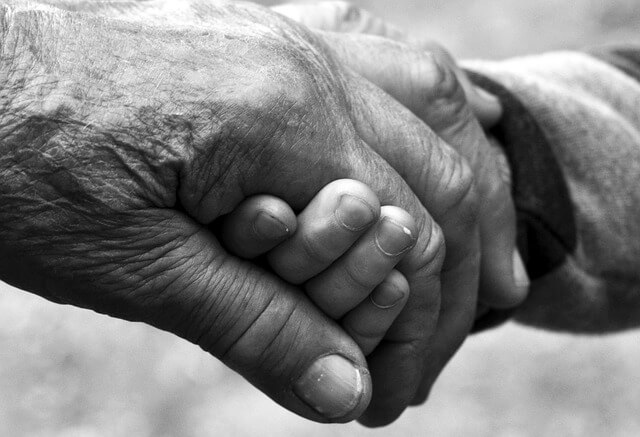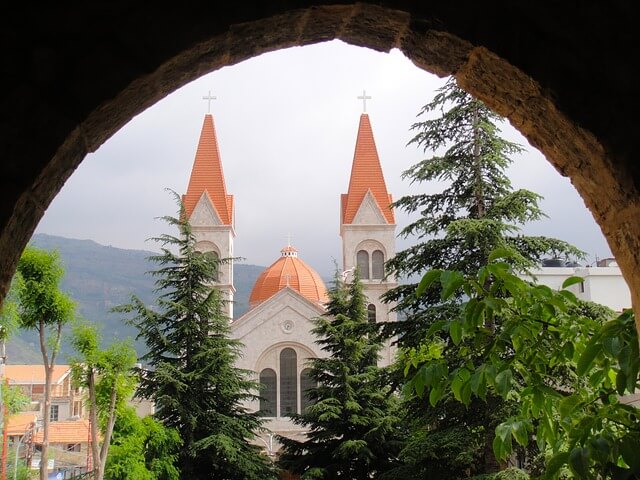Dear Jida,

Dear Jida. By: debowscyfoto
We’d be friends in different circumstances, wouldn’t we? Such fast friends. We’re alike, you and I. We’re pensive. We’re readers. We’re emotional.
It seems unfair to me that now that I’m learning to love the language of your homeland you’ve lost the will to speak it. The stroke you had 15 years ago has rendered you unable to walk, to talk properly, chop firewood and stack it neatly against the fence and laugh like you mean it. What a strange prison you’re in; intangible yet so well fortified, and built in the quickest second by an anomaly in an artery. You’ll always be locked away there with your words and ideas and puzzling faith. Away from us.
I used to be scared of you. It was a gentle sort of fear – respect, I guess. You were distant – tall, with your glasses and your knowledge. I felt as if maybe I disappointed you: a grandchild you couldn’t really connect with. I remember sitting next to you one Sunday in the small Maronite church, hating you because you wanted me to do a reading and I was too embarrassed. You were so angry. And I couldn’t tell you I was angry too because, as always, our two languages were in the way, jostling between us, making us strangers. My grandmother taught me how to make the parakeets come to the windowsill with sugar cubes, but you taught me that I could love without liking.

Right to left. By: Dotmatchbox
And now that I want to talk, you can’t. Is that my punishment? Sometimes when I visit you, you look at me and weep. I know you know we’re the same. You mumble occasionally and stare at me, wanting me to understand. The most I get is patches of a story, memories you think we share; but they’re only yours. You try to feed yourself but the food runs down your chin. I want to wipe it away. For all our dreams and efforts and magic, we come down to this – animals that control barely anything.
So instead of embracing the silence there in that room with us I think of how it could be, what it would be like if you were well. We could talk about so much. In my head we discuss religion and politics. We remember your wife and your niece and everyone else we were brave enough to love. You help me with my Arabic, showing me how each letter has an initial, medial and final form. How ‘the sky’ is all one word. How to taste the sound of the hamza in my throat.
I tell you about the person who gave me summer and then took it back. Then I write out the new words you taught me, and I cry the whole time. I press them onto the page: pomegranate, ocean, storm, heart. The pencil breaks. There were others, but I’m too tired to remember them. You check over them, sharpen the pencil and tack an extra letter onto my clumsy spelling of heart, turning it from alby into qalby. You explain how its ‘Q’ sound isn’t pronounced in Lebanese Arabic, but it still needs to be written. “I know it makes no sense, but that’s how it goes.”

Tucked into the mountains of Lebanon. By: David Mark
You talk about how going back to Lebanon is your biggest hope and deepest fear, how the winter cold eats at your skin and how the mountains might be there just to remind you that faith isn’t futile. Through it all I ask so many questions.
When I prepare to leave, you tell me what a sin it is to live in hypotheticals. And I nod, because I’ve known it all along. So we return, sluggish and reluctant, to this here-and-now world, where the air is thick with fatigue and thoughts we can’t articulate.
But when we’re back, it’s still there. It’s relentless and it followed me here. I need you to fix this but you just hold my hand and look at me, and we both understand that wanting keeps you alive and kills you all at once.
I guess it was inevitable that you’d teach me that lesson without either of us having to speak. I think I’m okay with that. We were always bigger than our words, after all.
Shukran.
Love,
Vivienne
Vivienne Zeaiter is a Sydney-based freelance writer who believes kibbeh with tomato sauce, despite being a deeply controversial combination, is the perfect metaphor for her Lebanese-Australian identity. She’s passionate about languages and social justice and blogs at june31st.wordpress.com.
Categories: Culture, Religion and Culture, Society
